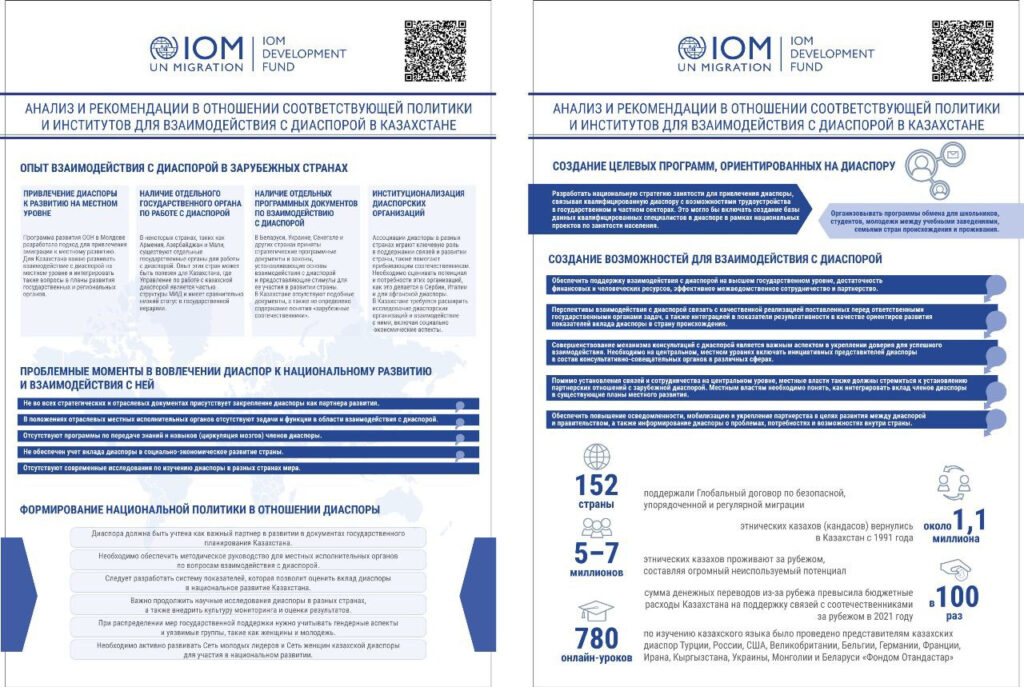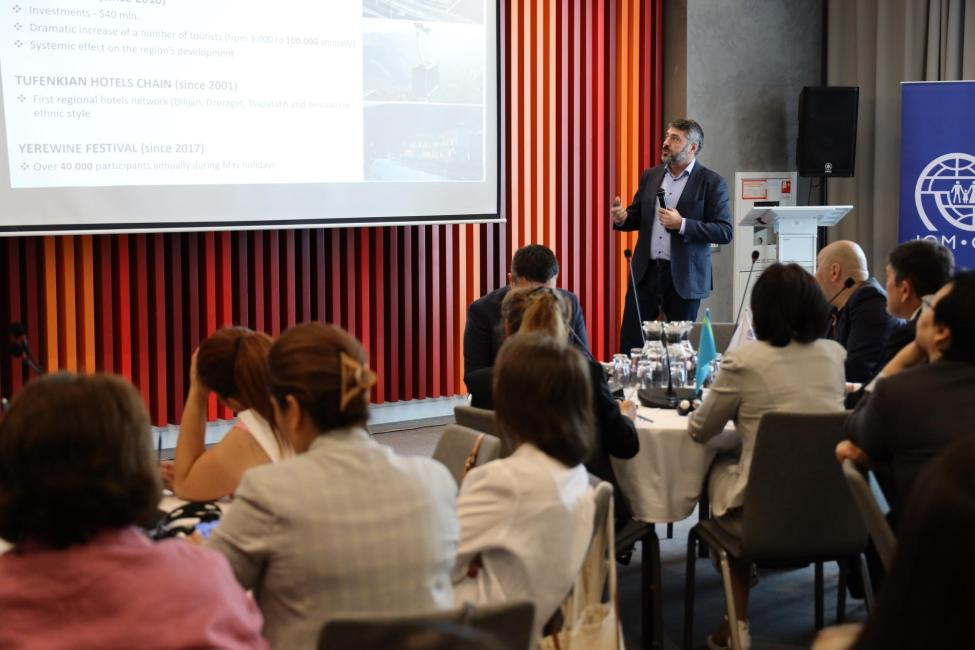ASTANA – Almaty hosted a two-day international seminar forum on Aug. 17-18, focusing on the engagement of the Kazakh diaspora abroad. The event was organized by the International Organization for Migration (IOM), the United Nations Migration Agency in Kazakhstan, reported the IOM’s press service.
The Kazakh diaspora, estimated to consist of five to seven million individuals, represents a diverse and potentially valuable resource for Kazakhstan’s social and economic progress. In the current context, diasporas act as natural bridges, facilitating interaction and development between nations. The era of globalization and technological advancements has enabled their active involvement in sustainable development efforts.
Kazakhstan’s diaspora policy is executed by governmental and non-governmental organizations, including diplomatic agencies, the World Association of Kazakhs, and the Otandastar (compatriots) Foundation. The diaspora participates in events organized by Kazakh organizations, business associations, and academic circles, including significant gatherings, such as the World Kurultai (Congress) of Kazakhs.
Botagoz Rakisheva, the IOM National Expert, said that before 1991, a substantial number of individuals migrated to destinations such as Russia, China, and the Central Asian region. However, after 1991, migration patterns shifted towards countries such as the United States, Türkiye, South Korea, Canada, the United Arab Emirates, and the United Kingdom.

Before 1991, communication primarily relied on landline phones and the Qazaq TV channel (formerly Caspionet), which broadcasted to Central Asia, the Middle East, North Africa, and numerous European countries. Nowadays, the internet and social media platforms, particularly social groups, play a significant role in facilitating communication and maintaining connections.
Numerous cultural centers play an important role in shaping interstate relations, cooperation, and partnership. The centers aim to preserve and foster Kazakh culture, language, traditions and customs, contributing to historical memory preservation and fostering the youth’s connection to national traditions.
These centers also serve as recreational hubs accessible to all interested individuals and serve as platforms for intercultural dialogue, aiding in forming ethnic identity and socialization.
“According to respondents, the knowledge of and adherence to customs and traditions of Kazakh culture play a crucial role in maintaining the Kazakh diaspora,” said Rakisheva.
Over one million individuals have expressed interest in joint investments for Kazakhstan’s development. The largest group consists of former Kazakh citizens who have acquired permanent residency in Russia, totaling around 603,000 individuals and accounting for 65% of all those interested.
“According to the World Bank, global remittances reached $540 billion in 2020, surpassing the combined foreign direct investment ($259 billion) and overseas development assistance ($179 billion) for the same year, even amidst the Covid-19 pandemic,” the press statement highlighted.
The sides also discussed strategies to bolster the Communication Strategy with the Kazakh diaspora and compatriots abroad. These strategies involve shaping national policies related to the diaspora, designing specialized programs for diaspora engagement, and creating broader avenues for diaspora interaction—an essential set of steps.
Since attaining state sovereignty, Kazakhstan has sought support and collaboration with its diaspora abroad. Through active repatriation efforts since 1991, approximately 1.1 million ethnic Kazakhs (kandases) have returned to Kazakhstan, making a significant contribution to the nation’s progress.
The event brought together representatives from organizations including the Otandastar Foundation, the World Association of Kazakhs, the Center for International Programs, the Kazakh Ministry of Foreign Affairs, the Ministry of Labor and Social Protection of the Population, the Ministry of Culture and Sports, the Ministry of Education, the Bureau of National Statistics, the Ministry of Digital Development, Innovation and Aerospace Industry, Atameken (the National Chamber of Entrepreneurs), and international experts from Armenia, Azerbaijan, Georgia, the Kyrgyz Republic and Russia.
Source : AstanaTimes


